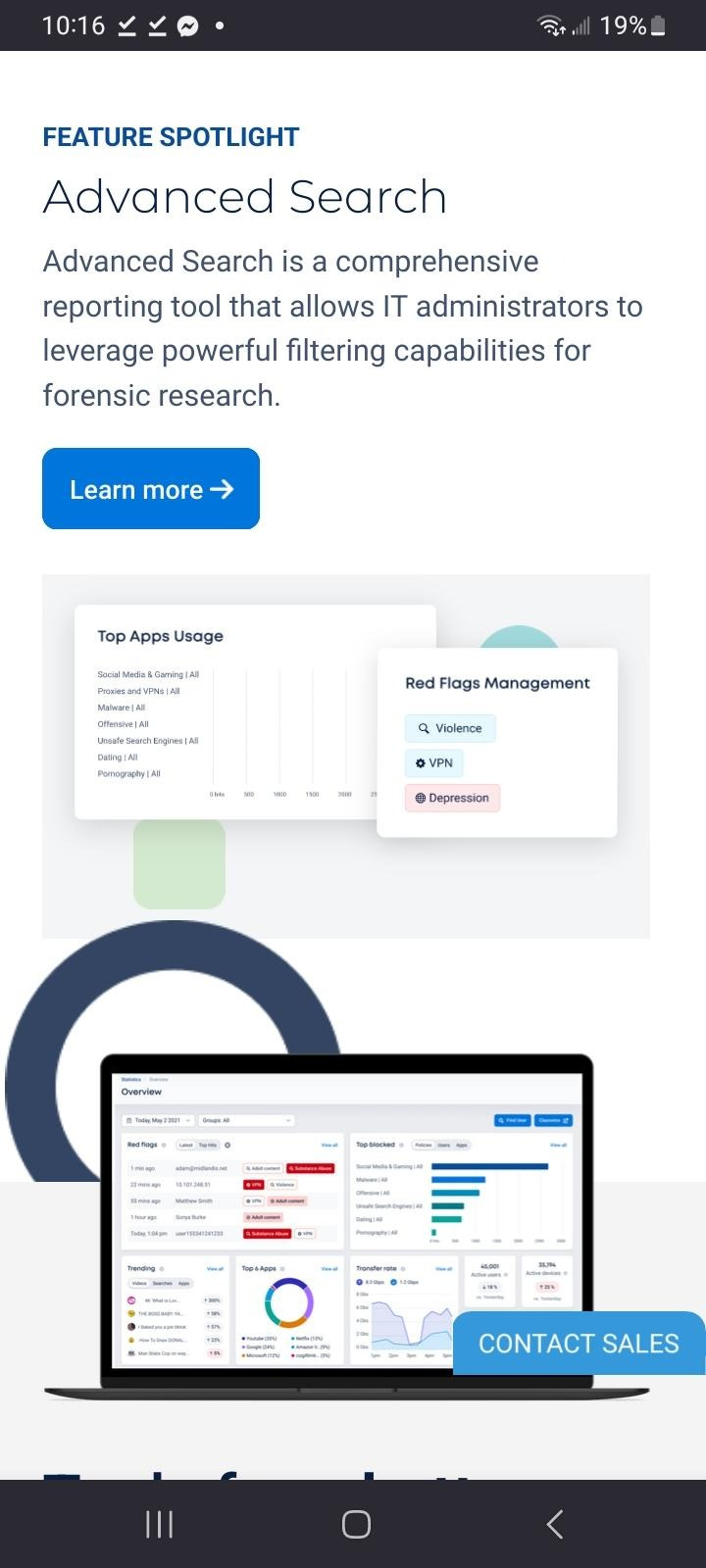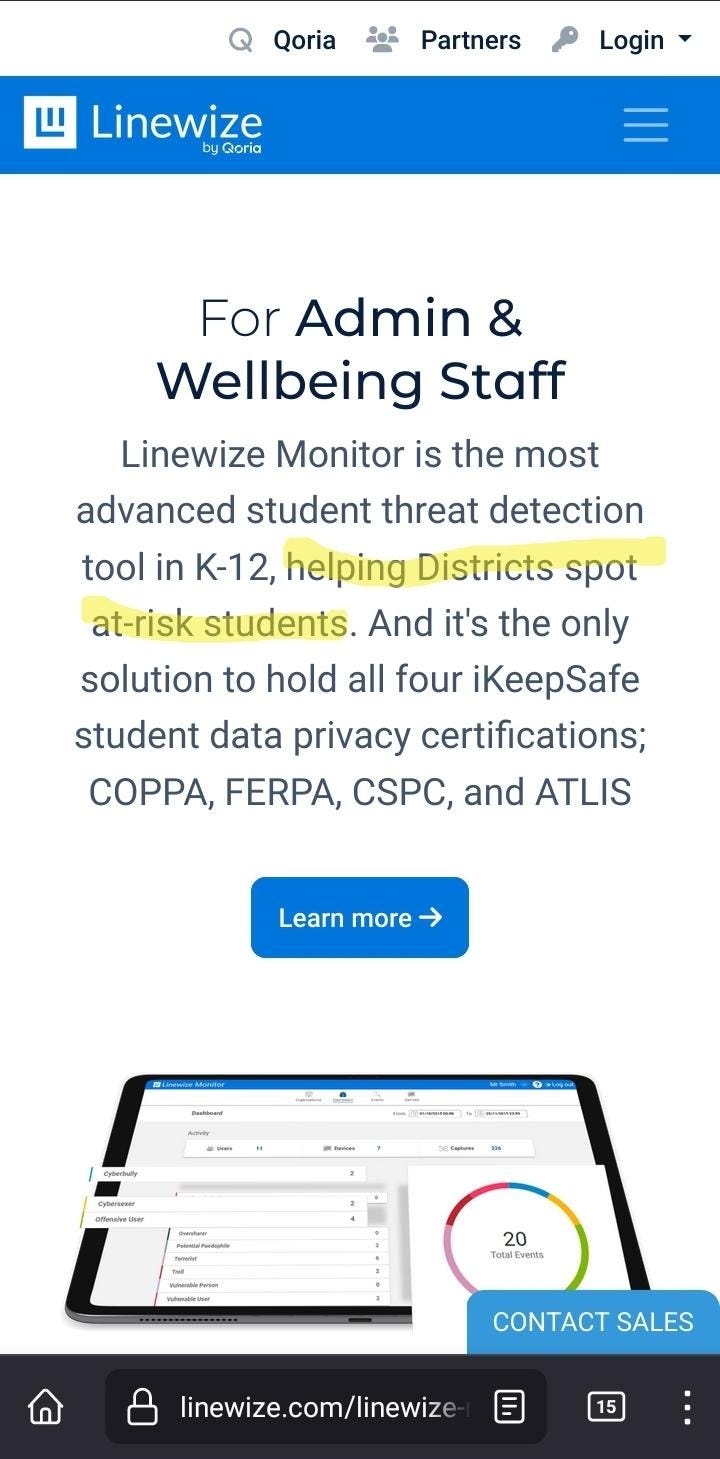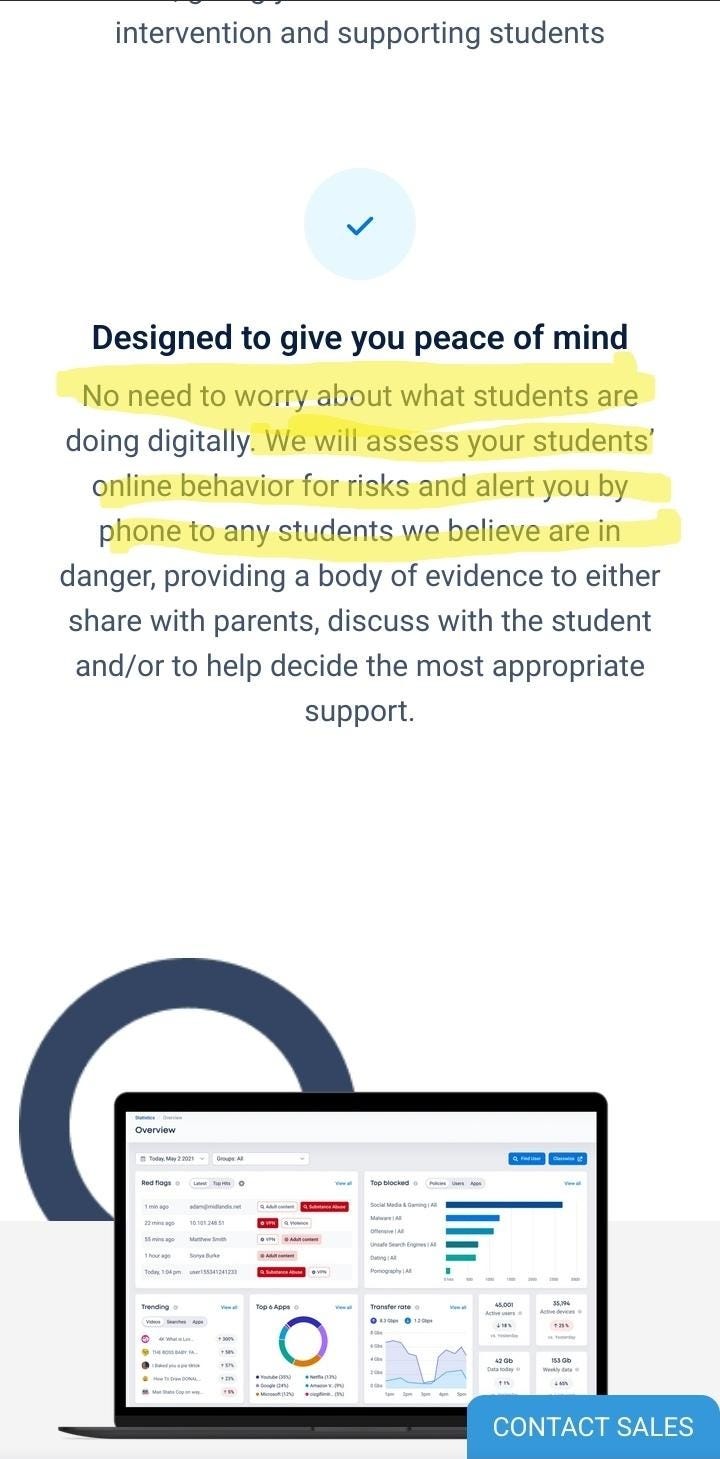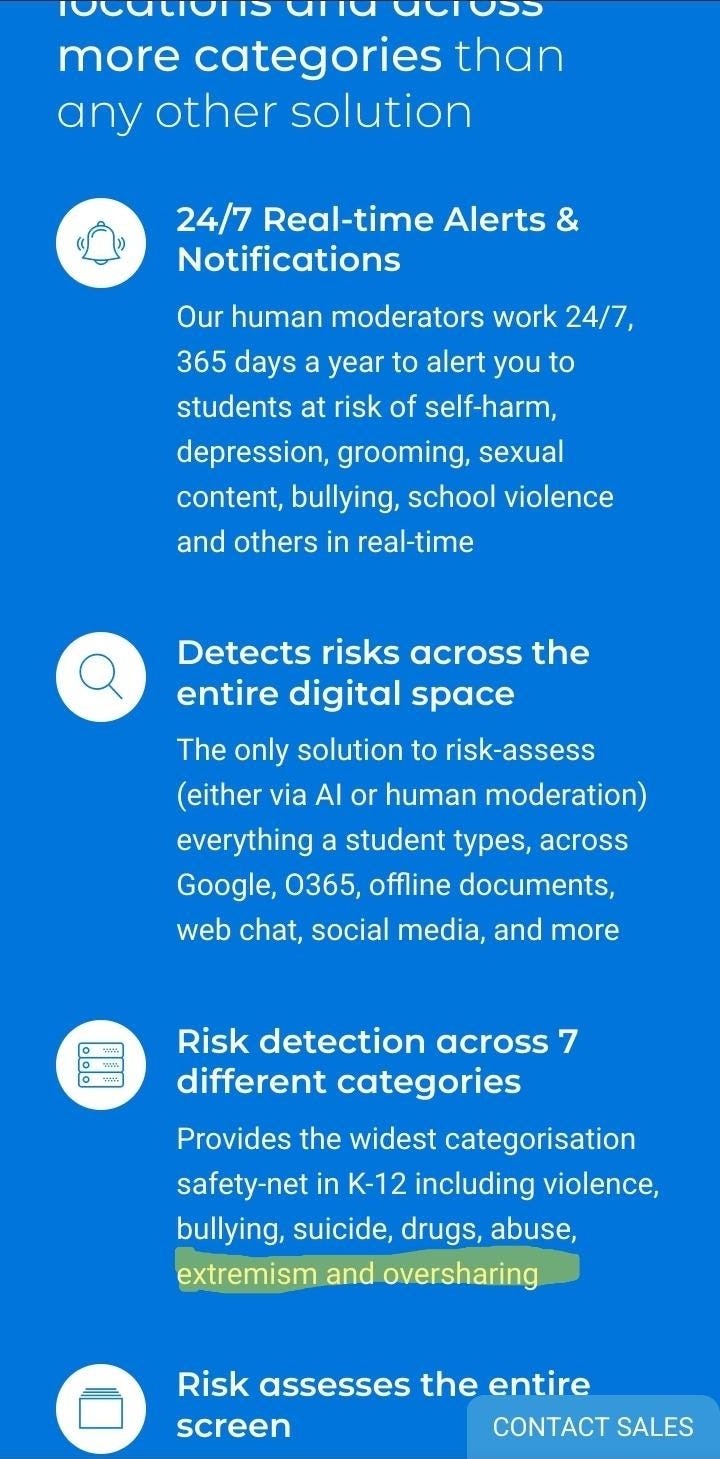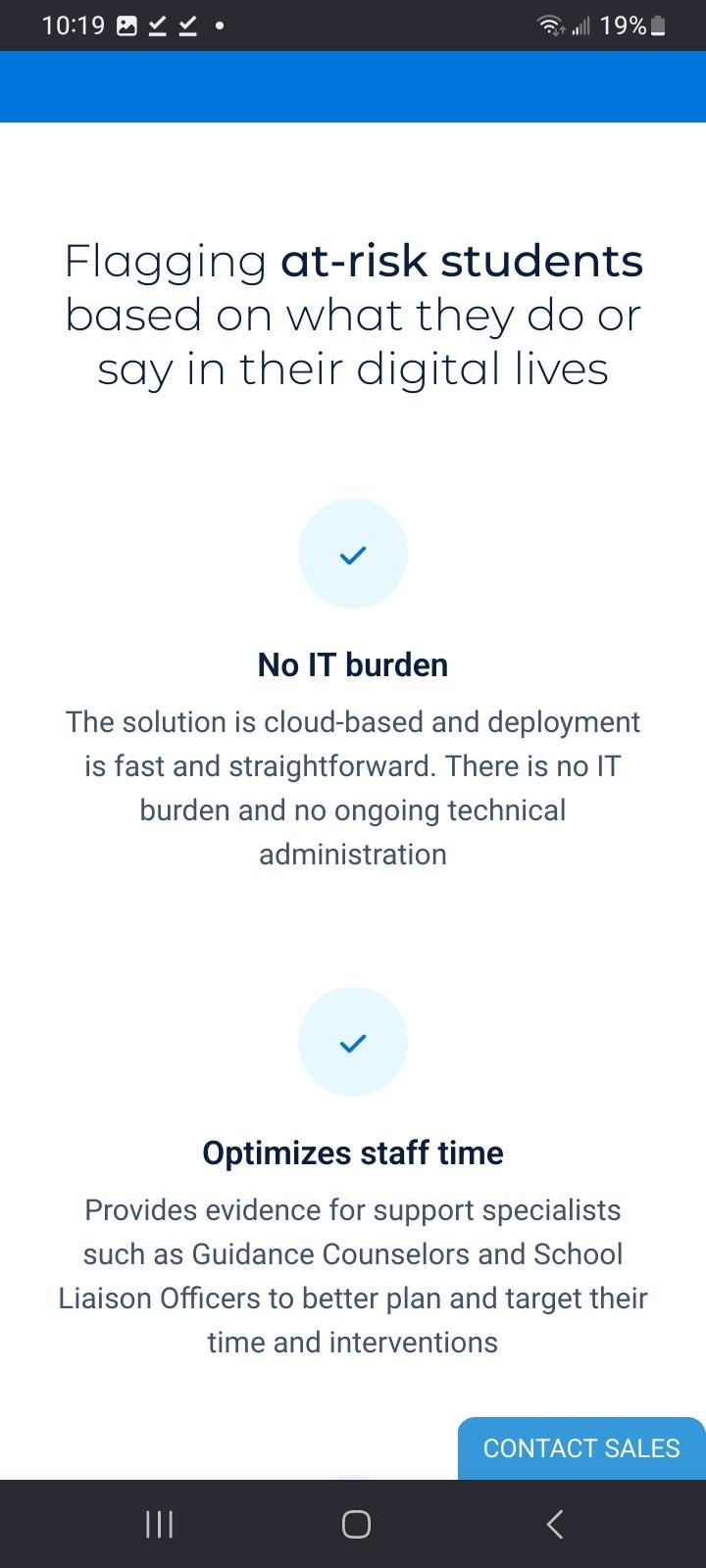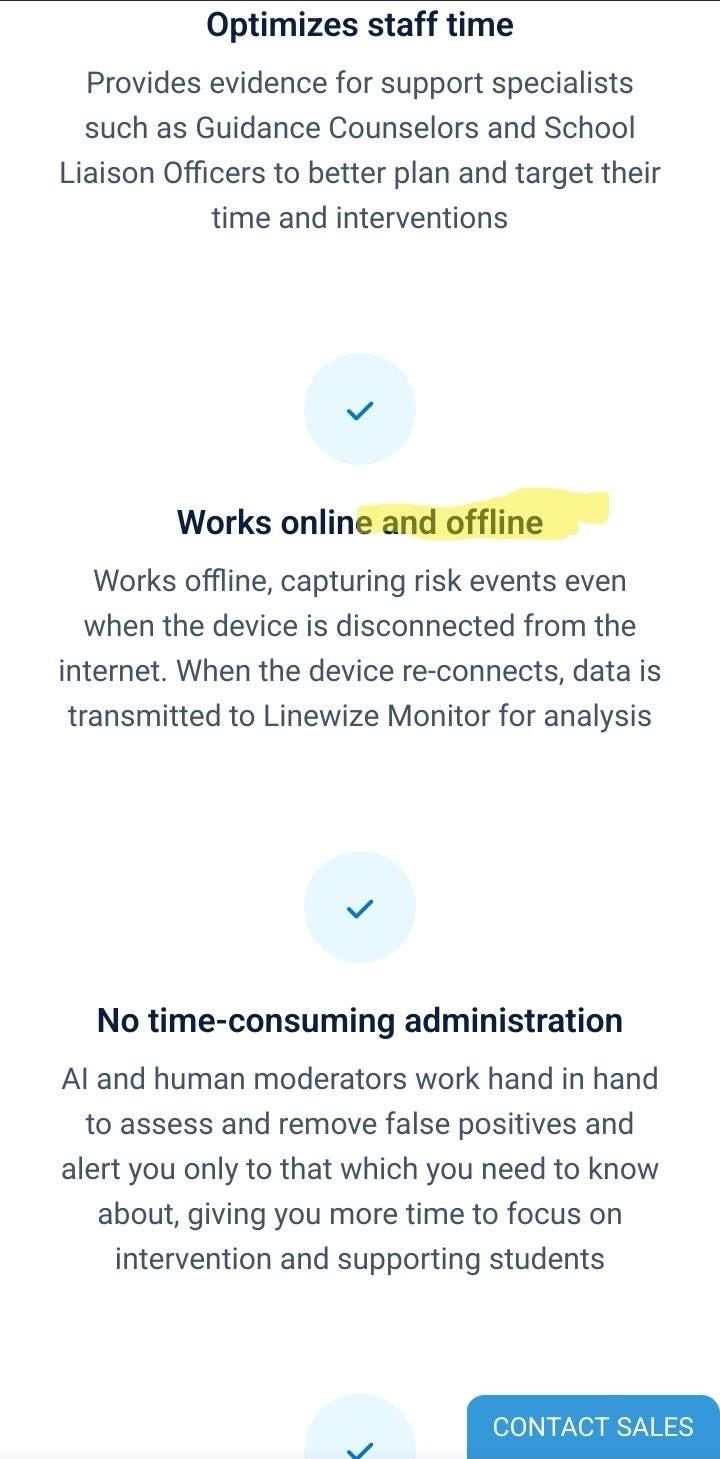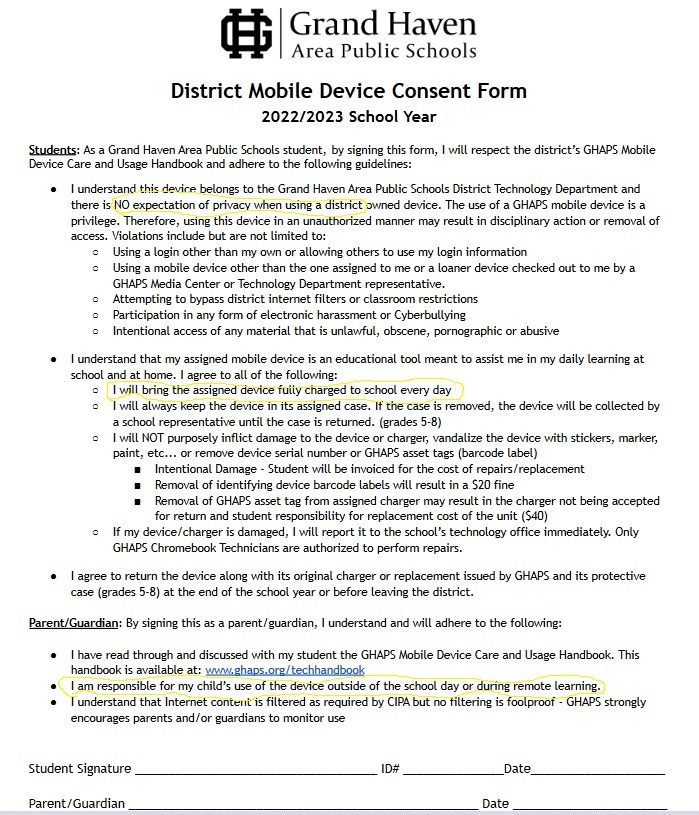Attention Parents!!! Did you know that if there is a school-issued device in your home, there are no confidential conversations between you and your child or anyone else in the room? With a school-issued device your child can be monitored outside of school hours and even when they are not online. School districts monitor emails, browser history, and record every keystroke your child makes. They can even turn on cameras and microphones remotely without permission. The technology is excessively invasive, and in Grand Haven taxpayers are paying for it through the 2014, $18.9 million school technology bond.
Districts know everything your children do on their Chromebooks, and they keep records of it. During class, teachers can see what is on every student’s screen. If they are surfing the web instead of doing their assignment, the teacher can see it in real time. The teacher can lock students out of their Chromebooks, and students can lose their Chromebook if they visit unauthorized websites. School districts can listen in on family conversations in homes, and it’s even possible to watch students undress, etc., if Chromebooks are left open in the room. This software is a peeping tom’s dream come true, and district policy is not widely understood by students or parents.
According to the article, Spying on Students: School-Issued Devices and Student Privacy, “This privacy-implicating information goes beyond personally identifying information (PII) like name and date of birth, and can include browsing history, search terms, location data, contact lists, and behavioral information. Some programs upload this student data to the cloud automatically and by default. All of this often happens without the awareness or consent of students and their families. [] Valued at over $8 billion, the educational technology sector in the U.S. has been described as “the world’s most data-mineable industry by far.” [] Parents who chose to withdraw their students from certain technology use are often met with few choices and insurmountable hurdles.”
Most school districts use software that scans emails and documents for certain keywords to monitor students. If those keywords are found, notification is sent to the IT department and school administrators. The IT department and school administrators investigate, and in some cases, law enforcement is contacted. Grand Haven Area Public Schools uses a program called GoGuardian to monitor student device behavior. Linewize, “an education-focused, cloud-managed, multi-OS supporting content filter,” is another tool used by many school districts to monitor student behavior on devices.
When many of us think about security and cameras, we envision a person sitting in a dark room in front of a wall of screens, attentively watching for signs of trouble. In today’s world, most of this work is done with Artificial Intelligence (AI). Like most security systems, Linewize is sold to districts under the guise of keeping children safe. While in my opinion the definition of ‘safety’ remains a poorly defined, yet effective, lever to induce taxpayer spending, spy software such as Linewize takes advantage of the safety angle to collect copious amounts of real-time data on student behavior, leading to some students unjustifiably being labeled “at risk”. Perhaps one of the most shocking features of this software, and an undeniable encroachment of student and family privacy, is that it works both when the device is online and offline, meaning that it listens and records during offline use and later uploads data when an internet connection is restored. Check out these screenshots from the Linewize website.
This video explains how school monitoring software works.
One Ottawa County charter school parent learned about device monitoring during the COVID lockdowns. “During the lockdown when the kids were at home doing virtual school, I walked into the room where one of my kids left his Chromebook sitting open. His teacher was on the screen. She wanted to speak with my son, so she turned on his camera to see if he was around. I have no idea how long she had been watching and listening before I walked into the room. That's how I found out about it.”
A parent of a GHAPS student explained her experience with monitoring. “My daughter was using her school issued Chromebook to watch a Netflix anime show at home one evening in 7th grade. A District IT person sent me and her email notifications informing us she was in violation of Chromebook policy because she was watching "porn". For the record she was not watching porn. She watched an episode or two of anime before she was “busted.” It wasn't until there was a shower scene, that the email was sent. The IT person must have been watching the show along with her because the email was sent within approximately 2 minutes. I was in the room with her, and I was aware of what she was watching. There was not any nudity. I was more concerned about the IT person invading her privacy. It was actually creepy.”
The technology for schools to spy on students at home through cameras in school-issued devices was available as early as 2010. One family in New Jersey learned of the capability after the school falsely accused their son of selling drugs, then showed him photos of himself, in his room at home taken through the school issued device. One photo taken contained the student’s father, and appeared on the evening news. The family won $610,000 in a settlement.
This is likely the reason for the Grand Haven Area Public Schools (GHAPS) school issued device policy. When students are issued devices, both students and parents are expected to sign the District Mobile Device Consent Form. The form states, “there is NO expectation of privacy when using a district owned device.”
Additionally, the form mandates that students, “bring the assigned device fully charged to school every day.” In other words, the district sends your child back to you with a device that is capable of monitoring everything that is said between you and your child within earshot of the device. Then the district mandates that the device be charged at home, and requires students to complete school assignments using the device, enabling many more hours of monitoring to take place.
Finally, the form places the burden on parents to ensure students are properly using the device outside of school hours. “I am responsible for my child’s use of the device outside of the school day or during remote learning.” Since devices are capable of monitoring everything at all times, there is no "safe space" nor anything confidential between you and your child that the school doesn't potentially know about if the device is open in the room.
So, what can parents do? Ask your school district about opting out. If you choose not to pursue this option, leave the device in a Faraday bag that blocks RFID signals. Instruct your child to only use the Chromebook for required school-related work, and charge the device in an unoccupied room.
I tell my kids that God, the NSA, and the school district know about everything they do.
In November, GHAPS is asking for additional money for technology. It’s one thing to provide students with the technology that helps improve their academic achievement, but it’s another thing to use software that pries into their home lives and continuously analyzes their behaviors. Remember, although the district may own the devices, you pay for all these devices and their intrusive monitoring capabilities. Will you vote to continue to place invasive monitoring devices in private homes?


